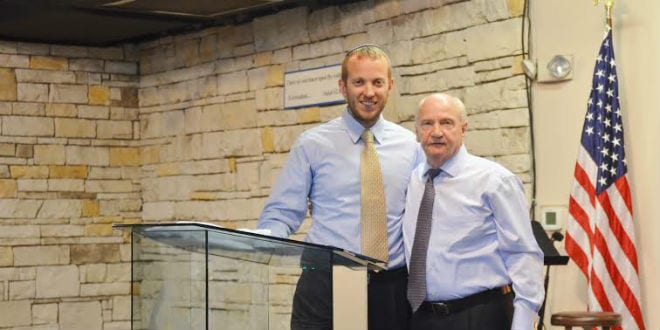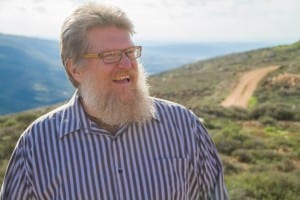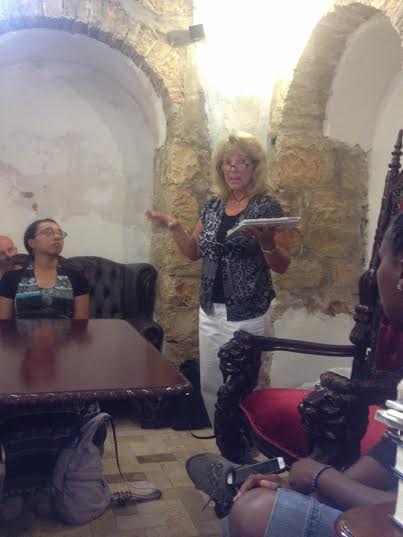
As COVID-related shutdowns pass, Christians pilgrims return to Israel
Following two years of COVID-related shutdowns, Christian tourists have returned this Sukkot to Israel, although not to the same extent as before the pandemic.
Whereas in previous years the International Christian Embassy Jerusalem (ICEJ) welcomed more than 6,000 pilgrims from all over the world to their “Feast of Tabernacles” celebration, this year only a third of that number will be arriving this week.

Thousands of Christian Evangelists wave their national flag alongside the Israeli one as they march in a parade in the center of Jerusalem, marking the Jewish holiday of Sukkot or the Feast of the Tabernacles. October 20, 2016. (Sebi Berens/Flash90)
The non-Jewish tourists who have come must therefore be warmly welcomed to our holy city not only for the economic boost they provide, but because their participation in our holiday brings us all closer to celebrating Sukkot the way it is described in the Bible.
Sukkot is unique in that the Torah describes both how the holiday was celebrated in the past as well as a prophetic vision for how it will be observed in the future.
The Book of Kings discusses the most magnificent Sukkot in the days of old while the prophet Zechariah describes the future holiday at the end of days. Describing Sukkot festivities separated by millennia, these two passages contain a common theme: the central role of the non-Jew on the Feast of Tabernacles.
King Solomon builds a home for God
A young King Solomon began to fulfill his father David’s desire to build a home for God in the fourth year of his reign, as described in the Book of Kings. Construction of Solomon’s Temple lasted for seven years and concluded in the autumn month of Heshvan in the 11th year of Solomon’s reign.
Nevertheless, the king let nearly an entire year pass before dedicating the Temple on Sukkot of the 12th year. Apparently, King Solomon delayed 11 months to wait for the perfect moment and the right holiday.
One explanation behind Solomon’s timing can be culled from the prayer he recited at the dedication ceremony: “Or if a foreigner who is not of Your people Israel comes from a distant land for the sake of Your name… when he comes to pray toward this house, hear in Your heavenly abode and grant all that the foreigner asks you for” (I Kings 8:41-43). From its very inauguration, King Solomon established that the Temple would eternally serve as a “house of prayer for all nations.”
The central prayers of Sukkot focused on rainfall, a universal need. Water libations were brought into the Temple with great festivity on Sukkot to beseech the heavens to provide all nations with sustenance and life. Solomon apparently waited to dedicate the Temple on Sukkot, the universal holiday.
THE OTHER biblical passage details a prophetic vision for the future Sukkot and again highlights the role of the gentile. The Hebrew prophet Zechariah describes how non-Jews will flock to Jerusalem in the messianic age: “All who survive of all those nations that came up against Jerusalem shall make a pilgrimage year by year to bow to the King Lord of Hosts and to observe Sukkot” (Zechariah 14:16). This verse became the inspiration for the ICEJ to organize their annual Feast of Tabernacles conference.
Missionary activity in Israel
Unfortunately, some of the Christian visitors will hope to use their time in the Jewish state to engage in missionary activity. The ICEJ does its best to prevent this, warning its guests to refrain from such offensive behavior.
As a sign of the times we are in – a golden age of Jewish-Christian relations – several Christian leaders have taken strong positions against missionary activity. Pastor David Swaggerty, who serves on the board of the Israel365 Charity Fund, arrived last week in Jerusalem with his wife, Miriam.

Rabbi Tuly Weisz and Pastor David Swaggerty. (Photo: CharismaLife)
“It is an absolute honor for me to celebrate Sukkot with the Jewish people,” said Swaggerty, who leads a church in central Ohio. “I am here as a Christian and as a guest. As a Christian who believes in the Great Commission, I feel that the call to spreading the Gospel does not apply to the Jewish people. Especially in light of centuries of Christian antisemitism, I am here to support Israel unconditionally and with no strings attached.”
Tommy Waller, the founder of Hayovel, which organizes Christian volunteers to tend Israeli vineyards in the Shomron, has publicly declared, “I would like to appeal to my Christian brothers and sisters: Please stop any missionary attempt to take away Jewish identity from those people whom God chose to carry his name.”

Tommy Waller, Founder of HaYovel (HaYovel)
Similarly, the owner of Jerusalem Tours, a Christian tour operator, Donna Jollay, encourages pilgrims not to engage in missionary efforts. “Many of my clients save up for their whole lives to visit Israel and only want to serve as a blessing to the Jewish people. And most of them don’t know about the long and sad history of Christian antisemitism. I always make sure to educate my clients and let them know how hurtful sharing their faith without this understanding can be to the Jewish people.”

Donna Jollay delivering a lecture to Christian students in Jerusalem. (Breaking Israel News)
We are living in a very special age of Jewish-Christian relations with courageous Christian leaders who reject antisemitism and Replacement Theology and all efforts to proselytize Jews. Granted, this new generation of Righteous Gentiles still only represents a small fraction of the 2.5 billion Christians around the world. Yet the Jewish community must recognize these positive developments, which would have been unimaginable at any other point in our history.
King Solomon and the prophet Zechariah would surely rejoice if they could see us in Jerusalem this week as we celebrate in our holy city with so many friends from around the world. The presence of thousands of non-Jews who have come to Jerusalem for the holiday enables us to come closer to the true fulfillment of Sukkot.
The writer is the editor of The Israel Bible and founder of Israel365, www.israel365.com, which connects Evangelical Christian Zionists with Israel each day. He invites reader feedback at RabbiTuly@Israel365.com.
Israel in the News